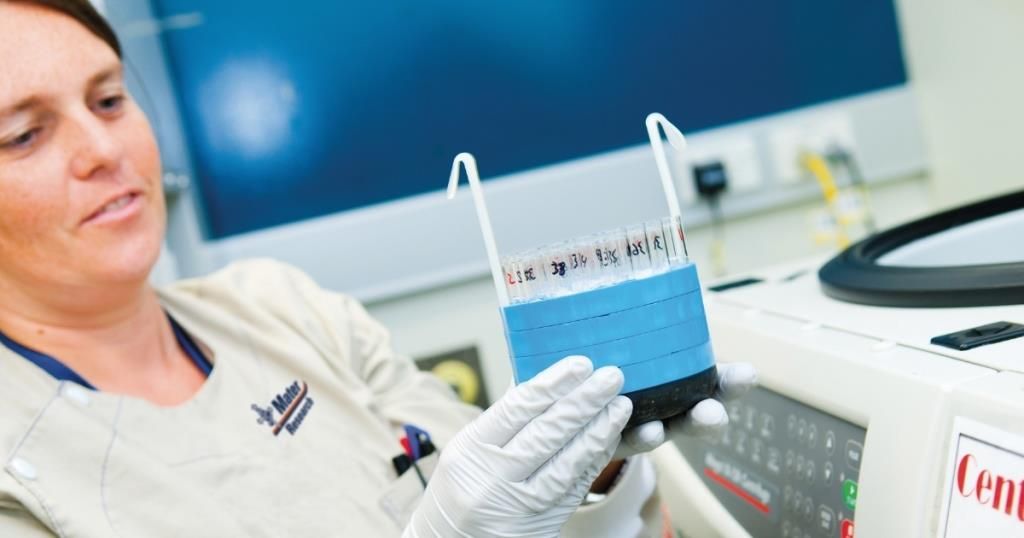Chasing a simple test for early detection

Did you know that colorectal, or bowel, cancer is Australia’s second biggest cancer killer?* In 2018, it will sadly claim the lives of an estimated 2124 men and 2005 women.**
These statistics are particularly sad when you consider that potentially 90 per cent of bowel cancer cases can be treated successfully, usually through surgery, if found early.
Surgery has been proven to be an effective treatment for bowel cancers, and so the earlier detected, the earlier and more effectively it can be treated.
Unfortunately, early detection doesn’t happen in most cases.
This is because some people have no obvious symptoms or ignore their symptoms for too long. Others believe they are not old enough to have the disease or want to avoid an invasive colonoscopy—the most accurate screening technique to date.
But what if a simple blood test could diagnose early colorectal cancers? And help determine the best treatment path for men and women with this disease?
At Mater Research, Dr Gregor Kijanka is exploring these possibilities.
“Catching cancer early is vital for curing patients, and this is often without the need for harsh treatments. As cancers can grow unnoticed for months and years, we are aiming to develop a blood test to find them at a very early stage in people who hadn’t even experienced any symptoms yet,” said Dr Kijanka.
Tumours produce antigens—and our immune systems recognise antigens as foreign, so they create antibodies to fight them.
In his ‘Screening proteins for prognosis and diagnosis of colorectal cancers’ project, Dr Kijanka hopes to identify these antigens, or proteins, in patients with colorectal cancer.
If he can—and the antibodies are present in the blood—Dr Kijanka may be able to develop a simple blood test to diagnose colorectal cancer in its early stages.
This research may also lead to more effective use of current treatments. For example, a percentage of men and women with rectal cancer will not respond to chemotherapy. If Dr Kijanka’s research can help identify them, then clinicians can more accurately target effective treatments, improving quality of life for these patients.
The second phase of the project is to see if there are specific proteins that are predictive—ones that show which people exactly are at risk of developing bowel cancer.
Dr Kijanka’s research project will run both stages concurrently, however the second phase is likely to take longer to test.
While there is still a long way to go, this research—if successful—could be quickly translated into clinical practice. Inexpensive and simple blood tests could be ordered by GPs to screen high-risk patients for early colorectal cancer, and determine the best possible treatment paths for patients.
“Your support of Mater Foundation through the Mater Cars for Cancer lottery has great impact on our work directly in the lab. It helps us to conduct better research faster, and bring the tests to the patients where they are really needed,” said Dr Kijanka.
As a result, the survival rates of colorectal cancer could improve.
Research is the most important tool we have in the fight against some of the major challenges facing healthcare today. Show your support for vital medical research, like Dr Kijanka’s, by purchasing your Cars for Cancer lottery tickets today.
*Source: bowelcanceraustralia.org/
**Source: canceraustralia.gov.au/
